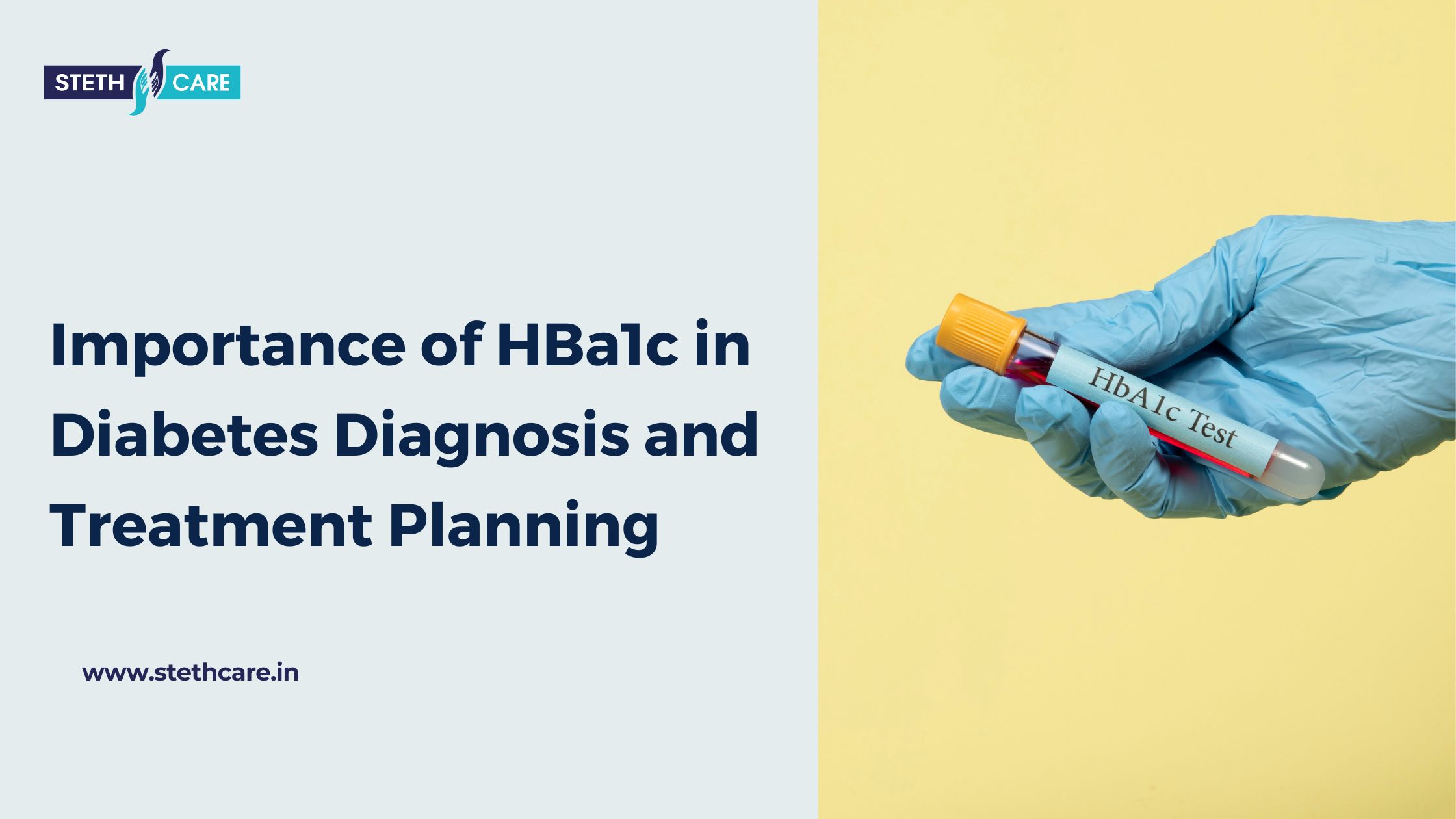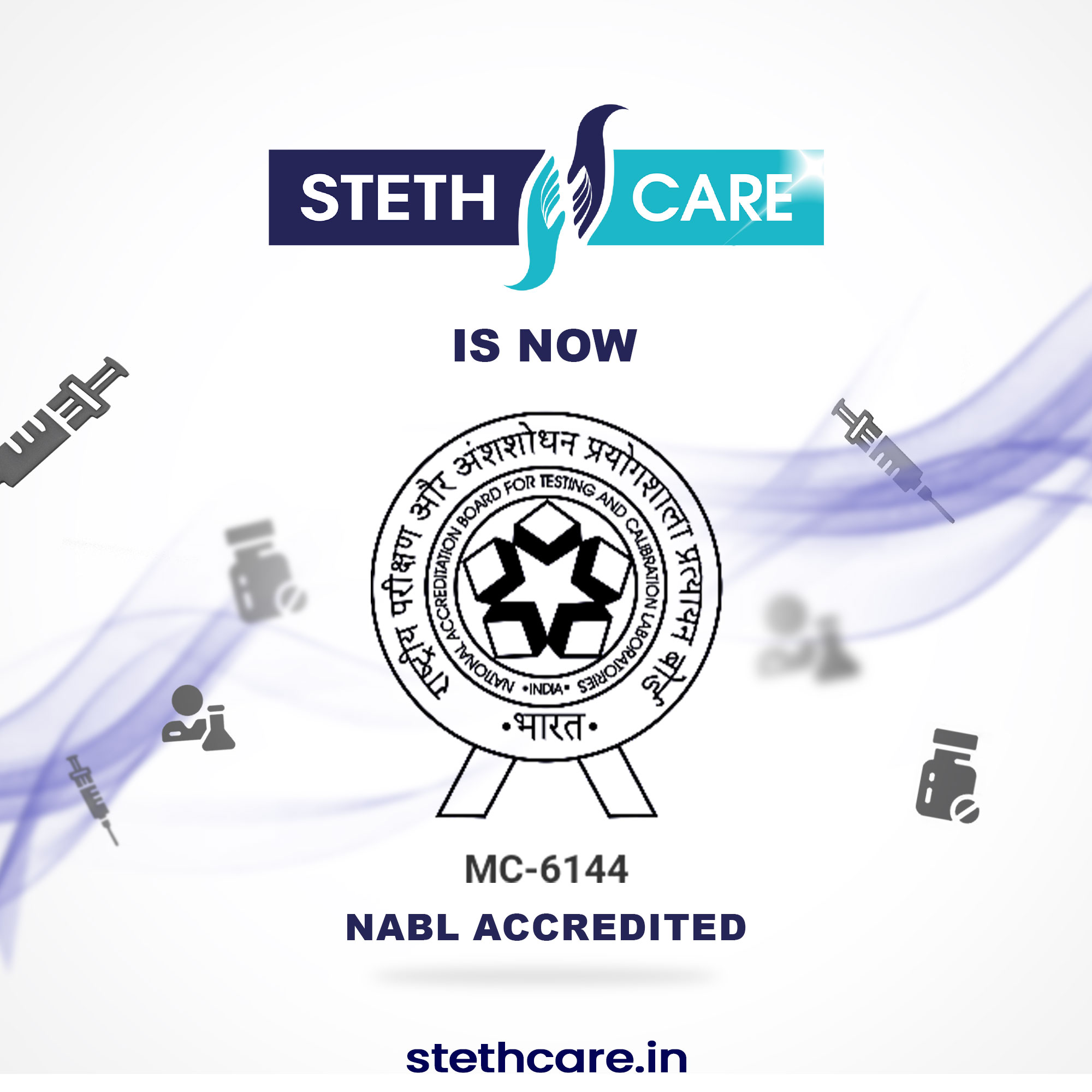
Living with diabetes requires careful management and monitoring of blood sugar levels. Hemoglobin A1c, often abbreviated as HBa1c in Diabetes Diagnosis plays a crucial role in treatment planning. In this blog post, we will explore the importance of HbA1c in managing diabetes effectively and leading a healthier life.
What Is HbA1c?
HbA1c, or glycated hemoglobin, is a measure of your average blood sugar levels over the past two to three months. Unlike daily blood sugar checks, HbA1c provides a more comprehensive picture of your glucose control.
Diagnosis of Diabetes:
- Early Detection: HbA1c tests can detect diabetes at an early stage when symptoms may not yet be noticeable. This allows for timely intervention and management.
- Diagnostic Threshold: An HbA1c level of 6.5% or higher is typically indicative of diabetes. Values between 5.7% and 6.4% may suggest prediabetes, a condition that often precedes diabetes.
Monitoring Blood Sugar Control:
- Long-Term Control: Regular HbA1c tests offer insights into your long-term blood sugar control. It helps track whether your treatment plan is effective in maintaining healthy glucose levels.
- Treatment Adjustments: If your HbA1c levels are consistently high, your healthcare provider may need to adjust your treatment plan, which can include changes in medication, diet, or exercise routines.
Benefits of HbA1c Testing:
- Accuracy: HbA1c results are not affected by daily fluctuations or short-term factors, providing a more accurate assessment of overall glucose control.
- Reduced Complications: Maintaining HbA1c within target levels can significantly reduce the risk of diabetes-related complications such as heart disease, kidney problems, and vision issues.
Setting Target HbA1c Levels:
- Individualized Goals: Your healthcare provider will help you establish target HbA1c levels based on your age, overall health, and specific diabetes type.
- Balancing Act: Target levels are a balance between effective blood sugar control and avoiding episodes of low blood sugar (hypoglycemia).
Frequency of HbA1c Testing:
- Initial Assessment: For individuals with newly diagnosed diabetes, HbA1c may be tested quarterly to establish baseline values.
- Stable Control: Once stable control is achieved, testing may be recommended every six months or as advised by your healthcare provider.
Factors Influencing HbA1c:
- Diet and Nutrition: Your eating habits and carbohydrate intake can affect HbA1c levels.
- Physical Activity: Regular exercise can help lower HbA1c levels.
- Medication Compliance: Taking prescribed medications as directed is crucial for managing HbA1c.
FAQs
Q1: How often should I get my HbA1c levels tested?
A: The frequency of HbA1c testing varies depending on your diabetes type and overall control. Initially, it may be more frequent to establish baseline values. Once stable control is achieved, testing may occur every six months or as advised by your healthcare provider.
Q2: Can lifestyle changes alone impact HbA1c levels?
A: Yes, lifestyle changes such as adopting a balanced diet, engaging in regular physical activity, and managing stress can have a significant impact on HbA1c levels. These changes can often complement medication or insulin therapy.
Q3: What’s the ideal HbA1c target range?
A: Target HbA1c levels are personalized based on your health, age, and diabetes type. Typically, the range falls between 6% and 7%. Your healthcare provider will work with you to determine the best target for your specific needs.
Q4: Can HbA1c testing be affected by other medical conditions?
A: Certain medical conditions, such as anemia, can affect HbA1c results. It’s essential to inform your healthcare provider about any underlying conditions that may impact the accuracy of the test.
Q5: How can I maintain stable blood sugar control?
A: Consistency is key. Follow your prescribed treatment plan diligently, monitor your blood sugar regularly, maintain a healthy lifestyle, and communicate openly with your healthcare team. Together, you can achieve stable blood sugar control and reduce the risk of complications.
Conclusion: Taking Charge of Your Diabetes Management
In conclusion, HbA1c testing is an invaluable tool in the management of diabetes. It provides a comprehensive view of your blood sugar control, helps diagnose diabetes at an early stage, and guides treatment planning. By working closely with your healthcare provider and monitoring your HbA1c levels, you can take proactive steps to reduce the risk of complications and lead a healthier, more fulfilling life with diabetes.
Remember, diabetes management is a collaborative effort between you and your healthcare team. Regular HbA1c testing empowers you to make informed decisions about your treatment plan and take charge of your diabetes journey.

